Climate policy tearing us apart
If the Coalition signs up for net zero by 2050, it will abandon its base and widen our societal rift.
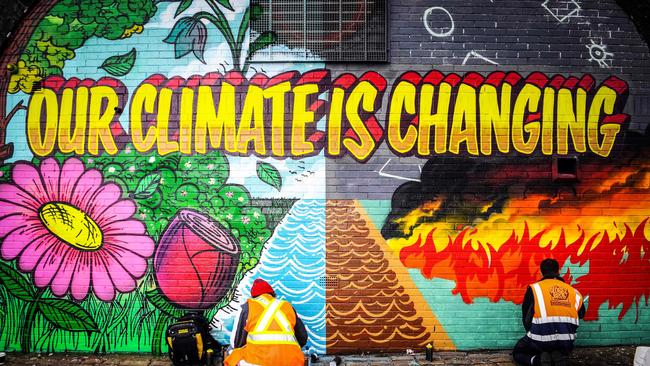
It seems now that through climate policy, mainstream people are about to be abandoned by the political class. The fissure in our nation has been frayed and torn by tensions over border protection, immigration, climate change and freedom of speech for decades, but it appears that net zero by 2050 will be the cause that finally cleaves the nation into two classes – two cohorts of Australians who are deaf and blind to each other’s perspective.
On one side are people removed from the coalface of the economy, people whose weekly budget is far less important to them than political and moral posturing. On the other side are people directly connected to the productive parts of the economy, who know the exact amount of their quarterly power bill.
Tectonic shifts have been under way as long as our federation has existed. Robert Menzies was attuned to these forces when he formed the Liberal Party as an organisation that was not beholden to organised labour or big business but championed the “forgotten people”.
In 1960, recounting the formation of the party to a gathering of Young Liberals, Menzies railed against his political opponents and their focus on “what governments ought to do”. He said socialists and communists were trying to “whip up something about class distinction”.
“A Liberal regards this country as having only one active class distinction,” he asserted, “the distinction between the active and the idle.” He went on to emphasise self-reliance and community contribution. “I warn you that unless you carry this torch on,” he concluded, “I shall turn in my grave and reprove you.”
You would have to think the party founder would be turning in his grave today. Never in peacetime have we seen such government dependency, expansion of government power, nor such submission from individuals.
The pandemic response is bad enough, with unprecedented levels of public debt funding us through a difficult time. We are told the spending and restrictions on our liberty will be temporary, but we are entitled to be worried because, as Milton Friedman warned, there is nothing so permanent as a temporary government program.
But the coagulation of political advocates, rent seekers and activists around the net zero by 2050 cause has sealed the deal. It has confirmed our two classes.
To envisage how climate activism has split this nation, just recall how former Greens leader Bob Brown and his anti-Adani convoy ventured into central Queensland in the lead-up to the 2019 federal election. Here were people who had the money, time, and inclination to take their moral superiority into the towns of other Australians and campaign for the destruction of their livelihoods.
Imagine the sanctimony and callousness – little wonder they got short shrift. In the town of Clermont, publicans refused to serve the protesters and mine workers held up placards alongside the anti-coalmine posters. “Queensland coal, powering Australia’s economy” read one. “Go home, turn off your power, and walk” read another.
The seasoned “Stop Adani” protesters, used to presenting slogans unfiltered through the media, suddenly had competition. “Without coal, we’re gone,” one local man told news crews. “They should consider looking after their own patch,” said a woman. “If it wasn’t for the mines, we wouldn’t have any businesses at all,” said another woman, while a man nearby wore a T-shirt with a “Start Adani” logo.
The Coalition backed the mine, and the anti-coal convoy, ridiculed by many as the “convoy of no consequence”, probably helped swing the election in the government’s favour. And as it happens, just this week the Carmichael mine produced its first coal, stockpiling it for export later this year.
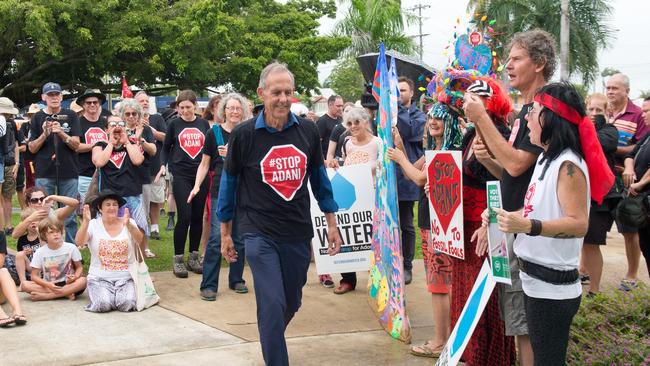
Yet we are told that by the time that first shipment leaves our shores, the Morrison government will have already joined the global movement committed to net-zero carbon dioxide emissions by 2050. It is extraordinary that in 2019 Scott Morrison realised the value of standing by “active” Australians but now, just over two years later, he is considering siding with the “idle” in their ill-defined and ill-considered campaign against energy and industry.
If the Coalition subscribes to the 2050 target there are two possible interpretations: either it is a cynical box-ticking exercise designed to neutralise the climate issue through one more election cycle by committing to a target 10 elections away; or the government is prepared to double down on the disastrously expensive and destabilising interventions in our energy sector, spreading the pain and costs to other sectors.
Either way, Menzies would be turning and reproving.
Who would be left as the voice of the “active”? Who will represent the lifters rather than leaners, the forgotten people, the working families, those who are not in the thrall of big unions, big corporates, or big government?
As the capital markets, industry superannuation funds, financial institutions, large corporations, major unions, left-of-centre parties, environmental groups, multilateral global institutions, and major media organisations all push in one direction, who is standing up for the individual? It should be the Liberals and Nationals – it is their raison d’etre.
Instead, the inexorable rise of the moderate faction within the Liberal Party will have seen it follow political fashion, give in to the bullies, and seek the approval of the media/political class rather than fight for practical policies and the interests of mainstream people. This will jeopardise a federal election victory that was looking more than likely.
The trouble with the climate debate is that there is so little science and economics involved. We get emotionalism, partisanship, and alarmism instead. We need a focus on the impacts, good and bad, of global warming, and the likely causes, as well as the costs, benefits and utility of potential remedies.
Catastrophism and slogans do not cut it.
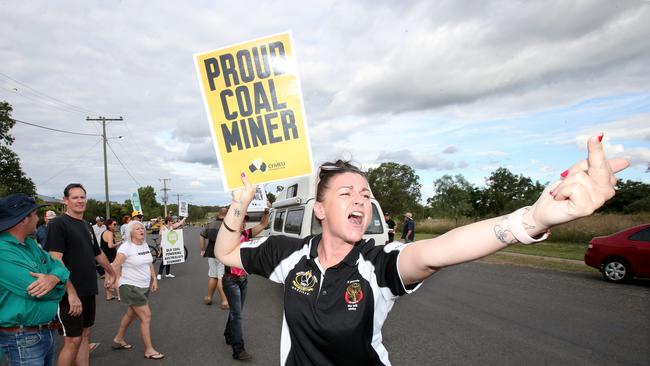
Rather than tackle the ever-growing carbon footprint of the world’s largest emitter, China (responsible for 27 per cent of global emissions), we see attention switched to Australia (less than 1.3 per cent of global emissions), a country that has reduced its emissions and met its targets. Yet rather than argue for a rational approach, Australia is set to yield.
We should be working at generating reliable and affordable electricity with fewer emissions – favouring proven technology such as nuclear energy – to lift more people out of poverty in Asia, Africa and South America. This, in turn, will lead to lower population growth and alleviate environmental pressures.
What we get, however, is debate about rich countries, wind turbines, electric cars, and pie in the sky dreams about government-driven energy solutions such as green hydrogen, offshore wind and magic battery breakthroughs. Signing on to net-zero 2050 is to endorse this fanciful virtue-signalling correctly called out by teenage climate hysteric Greta Thunberg as mere “blah, blah, blah”.
It is humiliating for a significant country like ours to go along with this. Are we going to pretend not to see the energy supply and price crisis, largely caused by climate policies, that is gripping the European advocates?
The International Energy Agency has declared that half the emissions reductions to get to net zero will have to come from unproven technology – on current technology, it cannot be done. If we take drastic action to attempt to meet the target we will further weaken our economy at the same time as we strengthen China. On national security grounds alone, it is reckless to surrender our energy security.
None of this is to deny the science or resist a sensible program to reduce greenhouse gas emissions. But maximising our pain and making ourselves vulnerable while there is no environmental gain – because global emissions continue to rise – is the very definition of self-harm.
The Liberal Party, the Coalition parties, used to exist to resist such folly and stand up for aspirational and practical Australians. Instead, they are going to leave mainstream concerns to someone else.
Running with the net-zero movement is to run with the ruling class, the media/ political class, the elites, the establishment – or, as Robert Manne called them, the “permanent oppositional moral-political community”. If it goes with the Glasgow zeitgeist, the Morrison government will find itself on the same side of the class divide as the Labor Party, Greens, academia, public broadcasters, unions, bureaucracy, social media and the comfortable inner-city and leafy suburban types who see politics as a field for moral posturing rather than practical improvement.
We could be entering a worrying and dangerous period. Egalitarianism will be put to the sword as the moral poseurs sneer at the mainstream and visit economic harm upon them. The lessons of the convoy of no consequence have been forgotten already, and many voters, feeling abandoned by major parties, will look to the minors instead.


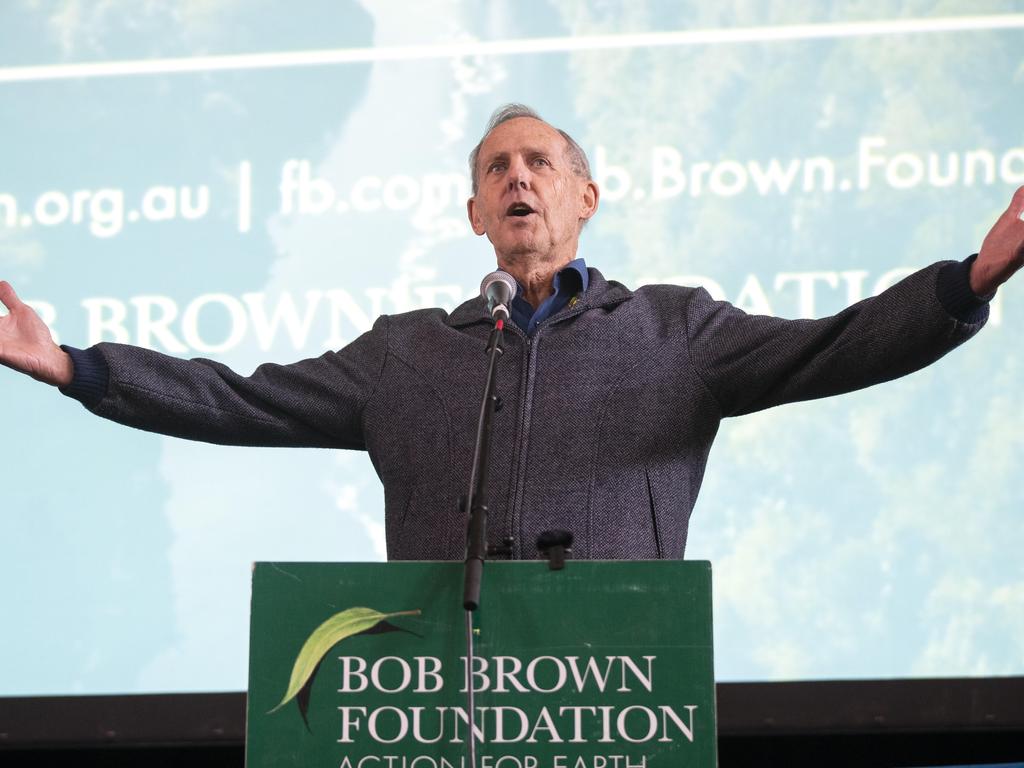


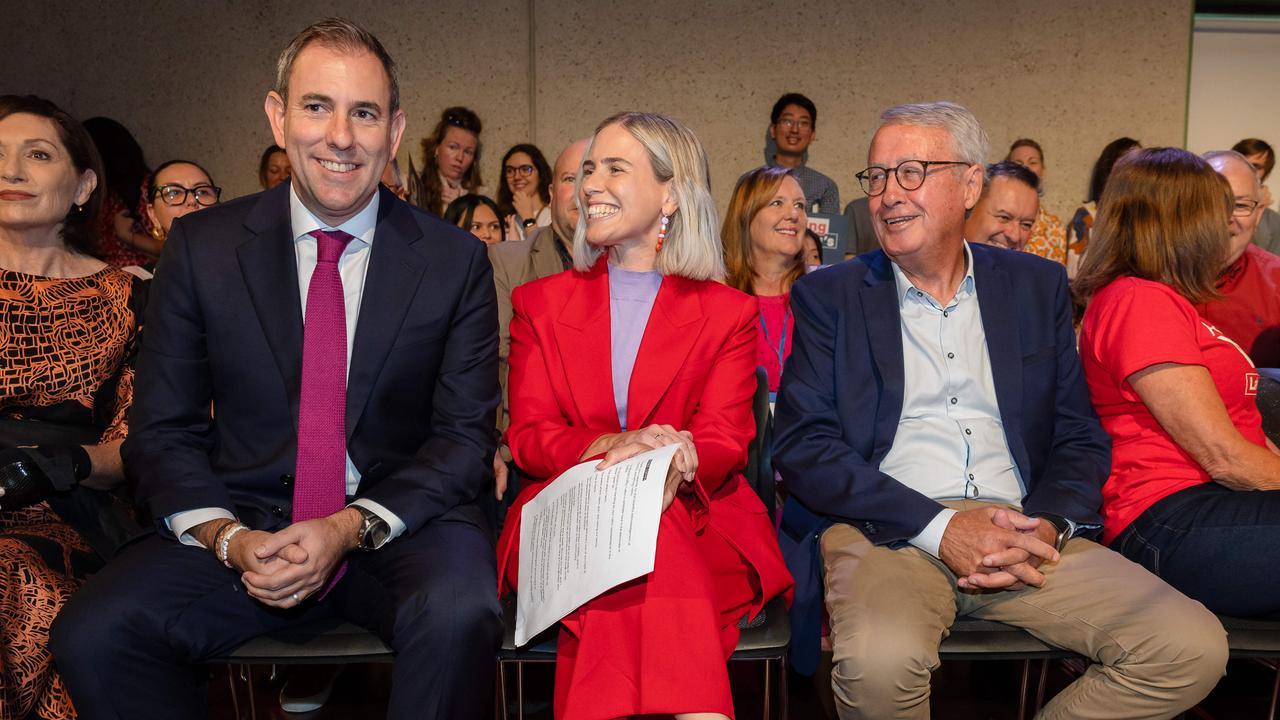

We have always prided ourselves on being an egalitarian nation, and our best leaders since the Menzies era, Bob Hawke and John Howard, found their inspiration, voice and support from the mainstream people who share aspirations and values across a wide array of income levels, cultural backgrounds and geographical locations. Sadly, in the 21st century, we are becoming a cleft nation, polarised and antagonistic, with little communication across what has become the great Australian divide.